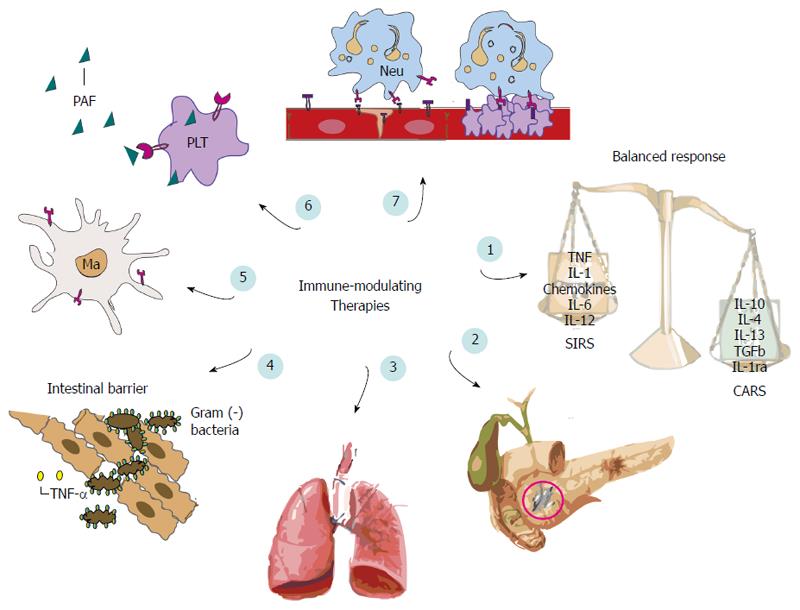Copyright
©2014 Baishideng Publishing Group Inc.
World J Gastroenterol. Nov 7, 2014; 20(41): 15200-15215
Published online Nov 7, 2014. doi: 10.3748/wjg.v20.i41.15200
Published online Nov 7, 2014. doi: 10.3748/wjg.v20.i41.15200
Figure 2 Immune modulating therapies.
(1) Target inflammatory response promoting or attenuating anti and pro-inflammatory mediators respectively (recombinant cytokine/chemokine administration, cytokine/chemokine antagonists, receptor blockade); (2) ameliorate parenchymal and fatty tissue necrosis of the pancreas [e.g., infliximab, blockade of interleukin (IL)-1 receptor, IL-10 blockade, IL-12 suppression, platelet activating factor (PAF)]; (3) alleviate alveolar oedema and development of acute respiratory distress syndrome (e.g., infliximab, IL-10 blockade, IL-8 blockade); (4) correct intestinal barrier and prevent bacterial translocation (e.g., anti-tumour necrosis factor, TNF); (5) modulate immune cell response (e.g., stem cell immunosuppressive strategies); (6) impair platelet activation and further immune activation (e.g., PAF); and (7) protect against endothelial barrier dysfunction, transmigration of neutrophils and concomitant microcirculatory derangements (e.g., adhesion molecule blockade). Ma: Macrophage.
- Citation: Akinosoglou K, Gogos C. Immune-modulating therapy in acute pancreatitis: Fact or fiction. World J Gastroenterol 2014; 20(41): 15200-15215
- URL: https://www.wjgnet.com/1007-9327/full/v20/i41/15200.htm
- DOI: https://dx.doi.org/10.3748/wjg.v20.i41.15200









